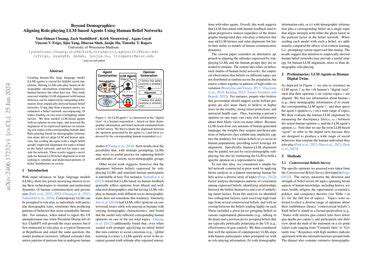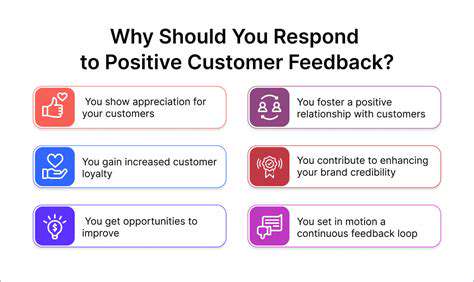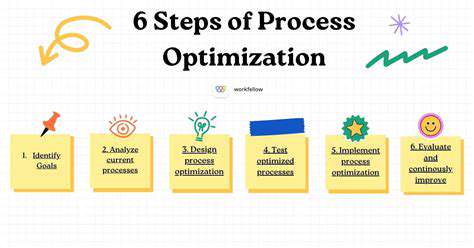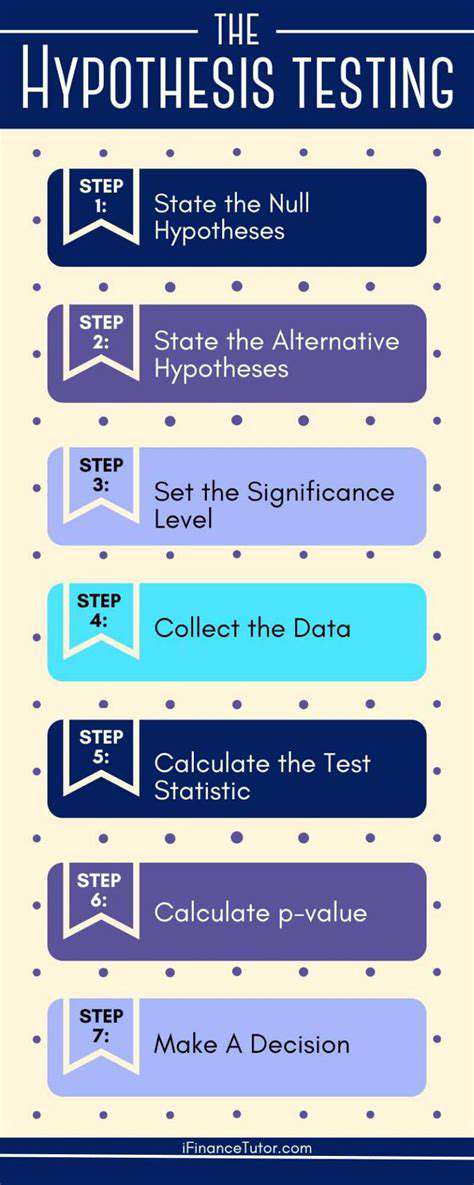Influencer Marketing Contract Negotiation Tips
Defining Clear Objectives and Expectations
Defining Clear Scope of Work
A crucial aspect of influencer marketing contract negotiation is establishing a precise scope of work. This outlines the specific tasks the influencer will perform, including content creation types (e.g., blog posts, social media posts, videos), the frequency of deliverables, and any required engagement with your brand's social media channels. A well-defined scope avoids ambiguity and ensures both parties understand their respective responsibilities throughout the campaign.
Setting Realistic and Measurable Goals
Beyond the scope of work, establishing specific, measurable, achievable, relevant, and time-bound (SMART) goals is essential. These goals should be clearly tied to your marketing objectives, such as increasing brand awareness, driving website traffic, or generating leads. Defining metrics for success (e.g., impressions, engagement rates, conversions) allows for a clear evaluation of the campaign's effectiveness and facilitates performance-based compensation structures.
Outlining Content Creation Guidelines
To maintain brand consistency and ensure high-quality content, a detailed set of guidelines for content creation should be included in the contract. This might include brand voice and tone, specific hashtags to use, approved visuals and logos, and any required disclosures. These guidelines ensure the influencer's content aligns with your brand identity and promotes a unified messaging strategy.
Establishing Compensation and Payment Terms
Transparency and clarity regarding compensation are paramount. The contract should explicitly state the influencer's payment structure, whether it's a flat fee, a per-post rate, or a commission-based model. Clearly outline the payment schedule, including deadlines for invoices and payment processing. Specify whether payment is contingent on performance or deliverables, and if any additional fees apply for special requests or modifications.
Managing Intellectual Property Rights
Defining intellectual property rights is crucial to avoid future disputes. The contract should clearly state who owns the rights to the content created by the influencer. This includes determining if the brand retains the right to use the content for future marketing campaigns or if the influencer retains certain rights. Detailed clauses about usage rights and restrictions are vital for safeguarding both parties' interests.
Addressing Potential Conflicts and Disputes
A well-structured contract should include a dispute resolution mechanism. This might involve a mediation process or a predetermined arbitration clause to handle disagreements or conflicts that may arise during the campaign. Proactive measures to resolve conflicts promptly and efficiently are essential to maintaining a positive working relationship and preventing costly legal battles.
Crafting a Comprehensive Contract Template
Understanding the Scope of Work
Defining the specific tasks and deliverables is crucial for a successful influencer marketing campaign. This section of the contract should clearly outline what the influencer is expected to do. This includes specifying the types of content (e.g., social media posts, blog articles, videos, stories), the frequency of content creation, and the platforms where the content will be published. Vague language can lead to misunderstandings and disputes later on, so meticulous detail is paramount.
Furthermore, the scope should encompass potential limitations. For example, if the influencer is not allowed to promote a competitor's product, this should be explicitly stated to avoid any potential conflicts of interest. This section should also address any potential restrictions on the influencer's creative freedom, such as specific hashtags or brand voice guidelines.
Compensation and Payment Structure
A transparent and detailed payment structure is essential to avoid future disputes. This section should clearly state the total compensation amount, the payment schedule (e.g., upfront, per post, per engagement), and the method of payment. It should also address any potential bonuses or incentives tied to specific performance metrics.
Consider including stipulations for late or missed payments, as well as clauses for handling unforeseen circumstances, such as platform algorithm changes that could significantly impact engagement rates and associated revenue. By addressing these potential issues upfront, you can mitigate future risks and ensure a smooth payment process.
Intellectual Property Rights
Clear guidelines regarding intellectual property are crucial to protect both the brand and the influencer. This section of the contract should specify who owns the rights to the content created by the influencer, including images, videos, and written content. The contract should detail whether the brand retains exclusive rights to use the content for marketing purposes or if the influencer retains some rights for personal use.
Performance Metrics and Measurement
Establishing clear performance metrics is essential for evaluating the success of the campaign. This section of the contract should outline the key performance indicators (KPIs) that will be used to measure the influencer's performance, such as engagement rates, reach, impressions, website clicks, and sales conversions. These metrics should be quantifiable and measurable to ensure accountability on both sides.
Define how these metrics will be tracked and reported, including specific timeframes for reporting and the frequency of performance reviews. Regular reporting and evaluation are key to ensuring the campaign remains aligned with the established goals and helps to identify and address any performance issues promptly.
Dispute Resolution
A well-defined dispute resolution process can help prevent conflicts from escalating. This section should outline the steps to be taken if a disagreement arises between the brand and the influencer. This could involve mediation, arbitration, or other alternative dispute resolution methods.
Confidentiality and Non-Disclosure
Protecting sensitive information is crucial for both parties. This section of the contract should include confidentiality clauses that obligate both the brand and the influencer to maintain the confidentiality of the other party's proprietary information. This includes sensitive brand strategies, marketing plans, and future product launches. This section should also specify the duration of confidentiality obligations after the contract's termination.
Clear stipulations regarding the use and disclosure of confidential information are essential to protect both parties' interests and maintain trust. This clause should be detailed and comprehensive to cover all potential scenarios and maintain legal protection for both the brand and the influencer.
Negotiating Payment and Compensation Structures
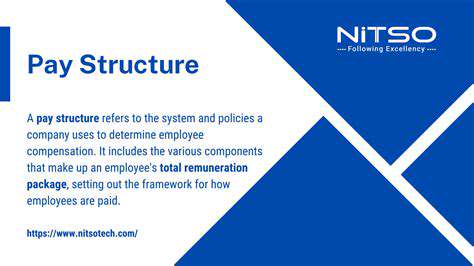
Understanding the Negotiation Landscape
Negotiating payment and compensation involves a delicate balance of understanding both your own needs and the needs of the other party. It's not just about getting the best possible deal for yourself; it's also about building a relationship that fosters future collaboration. Careful preparation and a clear understanding of your worth are crucial in any negotiation. This involves researching industry standards, assessing your skills and experience, and identifying your priorities.
The landscape of negotiation can vary significantly depending on the industry, position, and specific circumstances. Familiarizing yourself with these factors is essential to achieving a successful outcome. Understanding the potential roadblocks and challenges is vital for proactively addressing them. This often involves anticipating the other party's perspective and formulating counterarguments.
Defining Your Objectives
Before entering any negotiation, it's essential to clearly define your objectives. What are your desired outcomes? What are your bottom lines? Having a clear understanding of your goals allows you to focus your efforts and make strategic decisions during the negotiation process. A well-defined objective also helps you maintain composure and stay focused on the desired outcome.
Building Rapport and Trust
Building rapport and trust is an often-overlooked yet critical aspect of successful negotiation. Creating a positive and respectful atmosphere fosters open communication and encourages the other party to engage constructively. Empathy and active listening are key elements in building rapport. Showing genuine interest in the other party's perspective can help you understand their needs and concerns, which can lead to a more mutually beneficial agreement.
Presenting Your Case Effectively
Presenting your case effectively is paramount to achieving a favorable outcome. Articulating your value proposition, highlighting your skills and experience, and providing concrete examples of your achievements will strengthen your position. Thorough preparation and clear communication are crucial in presenting your case effectively. A well-organized presentation, supported by data and evidence, can significantly influence the other party's perception of your value.
Addressing Counterarguments and Concerns
Anticipating and addressing potential counterarguments and concerns is an integral part of successful negotiation. Preparing for potential objections allows you to formulate effective responses and maintain a positive demeanor throughout the process. Being prepared to address concerns demonstrates your professionalism and commitment to finding a mutually agreeable solution. This also allows you to demonstrate flexibility and willingness to compromise without sacrificing your core objectives.
Closing and Following Up
Closing the negotiation effectively involves summarizing the agreed-upon terms and ensuring that both parties understand their responsibilities. Documenting the agreement in writing is crucial for clarity and avoiding misunderstandings. Following up after the negotiation is just as important as the negotiation itself. Acknowledging the other party's contributions and expressing appreciation for their time and effort strengthens the relationship and paves the way for future collaborations. This is an important step for solidifying the agreement and future collaboration.
Managing Expectations and Maintaining Communication
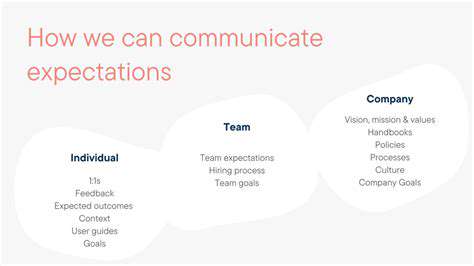
Setting Realistic Goals
Effective expectation management begins with establishing realistic goals. These goals need to be specific, measurable, achievable, relevant, and time-bound (SMART). Vague aspirations often lead to frustration and disappointment. Defining clear, attainable objectives allows for a more accurate assessment of progress and a more positive outlook on the journey towards achieving them.
Consider the resources available, the time constraints, and potential obstacles. Building a realistic timeline is crucial. Overestimating your abilities or underestimating the effort required can lead to significant setbacks. Planning for potential challenges and developing contingency plans is vital for maintaining a positive mindset.
Communicating Clearly and Frequently
Open and honest communication is paramount in managing expectations. Regularly discussing progress, challenges, and any necessary adjustments is essential for maintaining a shared understanding of the situation. This proactive communication fosters a sense of collaboration and trust, crucial for navigating potential conflicts or misunderstandings.
Clear communication also involves actively listening to the perspectives of others. Understanding their needs and concerns allows for the development of tailored strategies and solutions, thus ensuring that everyone feels heard and valued. This fosters a collaborative environment.
Acknowledging and Addressing Concerns
Proactively addressing concerns helps to prevent them from escalating into larger issues. Identifying and acknowledging potential problems early on allows for timely interventions and prevents unnecessary stress or frustration. Open dialogue about concerns, even if they seem minor, is crucial for maintaining a healthy working relationship and a positive atmosphere.
Addressing concerns effectively involves listening carefully, understanding the root cause, and providing actionable solutions. This shows that you value the concerns of others and are committed to finding suitable resolutions.
Adapting to Changes and Feedback
The ability to adapt to unexpected changes and feedback is a critical aspect of effective expectation management. Life and work are rarely static, and unforeseen circumstances often arise. Flexibility and a willingness to adjust plans are key to maintaining a positive outlook and achieving desired outcomes.
Actively seeking and valuing feedback is essential for continuous improvement. Constructive criticism can provide valuable insights and help identify areas for refinement or adjustment.
Celebrating Milestones and Recognizing Effort
Acknowledging and celebrating milestones, no matter how small, reinforces positive behaviors and motivates continued effort. Recognizing the hard work and dedication of individuals involved boosts morale and fosters a more positive work environment. This recognition strengthens the sense of accomplishment and builds a stronger sense of community.
Regularly acknowledging effort, both large and small, cultivates a supportive and encouraging environment. This helps maintain motivation and ensures that everyone feels valued for their contributions.
Read more about Influencer Marketing Contract Negotiation Tips
Hot Recommendations
- Personalizing Email Content with User Behavior
- Geofencing for Event Attendance Tracking
- Reputation Management on Social Media
- UGC Beyond Photos: Videos, Testimonials, and More
- The Future of Data Privacy Regulations
- Accelerated Mobile Pages (AMP) Benefits and Implementation
- The Future of CRM: AI and Voice Integration
- Google Ads Smart Bidding Strategies: Maximize Value
- Common A/B Testing Pitfalls to Avoid
- Local SEO Strategies for Small Businesses


